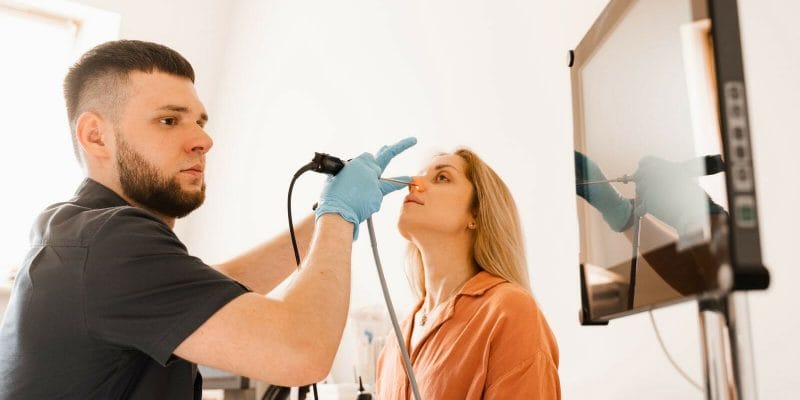The sinuses are the air-filled cavities in your face that help filter out pollutants, humidify the air you breathe, and produce mucus to protect your nasal passages. However, when the sinuses become infected or inflamed due to allergies, viruses, or bacteria, you may experience discomfort and difficulty breathing. In such cases, sinus surgery may be recommended to remove blockages and improve drainage. But what are the different types of sinus surgery? In this blog post, we’ll explore some of the most common and effective interventions for sinus issues.
1. Functional Endoscopic Sinus Surgery (FESS)
Functional Endoscopic Sinus Surgery (FESS) is a minimally invasive technique used to treat various sinus conditions. In FESS, the surgeon uses an endoscope to magnify the sinuses and remove any obstructions or enlarged tissue that may be preventing proper sinus drainage. Its main goal is to enlarge the sinus ostia and restore normal function. FESS can be done in combination with other procedures like septoplasty to correct a deviated septum or balloon sinuplasty, which involves the use of a balloon to widen blocked sinus passages. This procedure has greatly changed the evaluation and treatment of sinus infections since it was first developed.
2. Endoscopic maxillary antrostomy
Endoscopic maxillary antrostomy is considered the most common type of endoscopic sinus surgery. This procedure involves enlarging the maxillary sinus opening via the maxilla, which is the cheekbone. It is commonly used to treat chronic sinusitis and nasal polyps, which are often located in the maxillary sinuses. Sometimes dental issues can cause chronic maxillary sinusitis, termed odontogenic sinusitis. Endoscopic maxillary antrostomy is one of several types of endoscopic sinus surgery, which include frontal sinusotomy, ethmoidectomy, and sphenoidotomy.
3. Endoscopic ethmoidectomy
Endoscopic ethmoidectomy is a type of functional endoscopic sinus surgery (FESS) procedure used to treat chronic sinusitis. This surgery involves removing the infected tissue and bone within the ethmoid sinuses to create larger sinus cavities, which helps to restore sinus ventilation and normal function. These sinuses are located in between the eyes. Surgery consists of removing cells and partitions of bone to create a single cavity.
4. Endoscopic frontal sinusotomy
Endoscopic frontal sinusotomy is one of the more complex types of sinus surgeries used for treating chronic sinusitis. It involves removing the floor of both frontal sinuses and opening the frontal outflow tract. This surgery is often used when other sinus surgeries, such as functional endoscopic sinus surgery, have failed. There are several types of frontal sinusotomy, based on the extensiveness of work.
5. Endoscopic sphenoidotomy
Endoscopic sphenoidotomy addresses blockages in the sphenoid sinuses, which are central aerations of the sphenoid bone. It is also often performed in combination with other types of sinus surgery, including endoscopic maxillary antrostomy, endoscopic frontal sinusotomy, and endoscopic ethmoidectomy. The use of a standard transethmoidal (through the ethmoid sinuses) sphenoidotomy technique makes this type of sinus surgery safe and effective for patients with sphenoid sinus disease. A transnasal (through the nose) approach may also be performed.
6. Balloon sinuplasty
Balloon sinuplasty is a less invasive procedure compared to other sinus surgeries, and may be appropriate in certain cases. It uses small catheters fitted with balloons to open up blocked sinuses and improve the drainage of the nasal passages. This technique has been developed to help patients with chronic sinusitis who have not achieved sufficient relief from medical therapy. Following the procedure, patients experience clear nasal and sinus passages, leading to reduced congestion, pressure, pain, and mucus buildup. Recovery times are shorter than with other surgical options, with most patients returning to work within 5-7 days. Balloon sinuplasty is considered an effective and safe treatment for chronic sinusitis, and can significantly improve the quality of life for those who have been living with recurring sinus problems.
SinusHealth provides expert sinus education. Our board-certified otolaryngologists provide trusted answers to your questions about sinus conditions and treatment methods. You can also contact us online!

